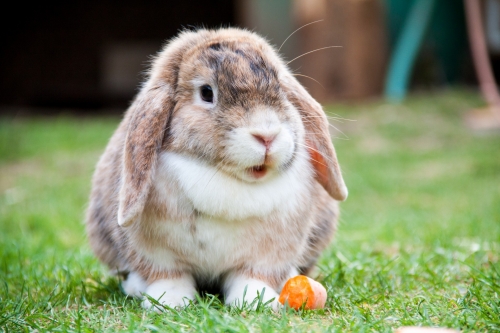
Current filter:

People who have pet rabbits should get their animals vaccinated now so that they are protected against a new strain of rabbit calicivirus (RCD).
The RHDV1-K5 has been approved for release, and Hawke’s Bay Regional Council is one of the regional councils that will be making use of this tool to reduce numbers of wild rabbits on farm land. The release is timetabled for the week of 23 April 2018. However it could kill pet/domestic rabbits if they are not vaccinated against it.
“We want pet owners to act now and get pet rabbits to their vet to ensure these animals are protected - the existing vaccination will work,” says Hawke’s Bay Regional Council Biosecurity Manager, Campbell Leckie.
Hawke’s Bay Regional Council is contacting vets and pet shops advising them of the virus release date and encouraging them to remind customers that the vaccine will work to protect against this new strain.
However the vaccine takes 10- 14 days to work, so owners need to check that their pet rabbits are vaccinated within the next two weeks; any that have already been vaccinated may need a booster, so check with a vet.
This is not a new virus; it is a strain of the virus already widespread in New Zealand but the new strain may overcome resistance to the old disease. RHDV1 only causes infection in the European rabbit which is designated a pest in Hawke’s Bay. Manaaki Whenua Landcare Research information is that no other animal has developed an infection from being exposed to RHDV1.
In addition to vaccination, the NZ Veterinary Association also recommends the following biosecurity measures for pet rabbit owners:
More information is available --
23 March 2018
Disclaimers and Copyright
While every endeavour has been taken by the Hawke's Bay Regional Council to ensure that the information on this website is
accurate and up to date, Hawke's Bay Regional Council shall not be liable for any loss suffered through the use, directly or indirectly, of information on this website. Information contained has been assembled in good faith.
Some of the information available in this site is from the New Zealand Public domain and supplied by relevant
government agencies. Hawke's Bay Regional Council cannot accept any liability for its accuracy or content.
Portions of the information and material on this site, including data, pages, documents, online
graphics and images are protected by copyright, unless specifically notified to the contrary. Externally sourced
information or material is copyright to the respective provider.
© Hawke's Bay Regional Council - www.hbrc.govt.nz / +64 6 835 9200 / info@hbrc.govt.nz